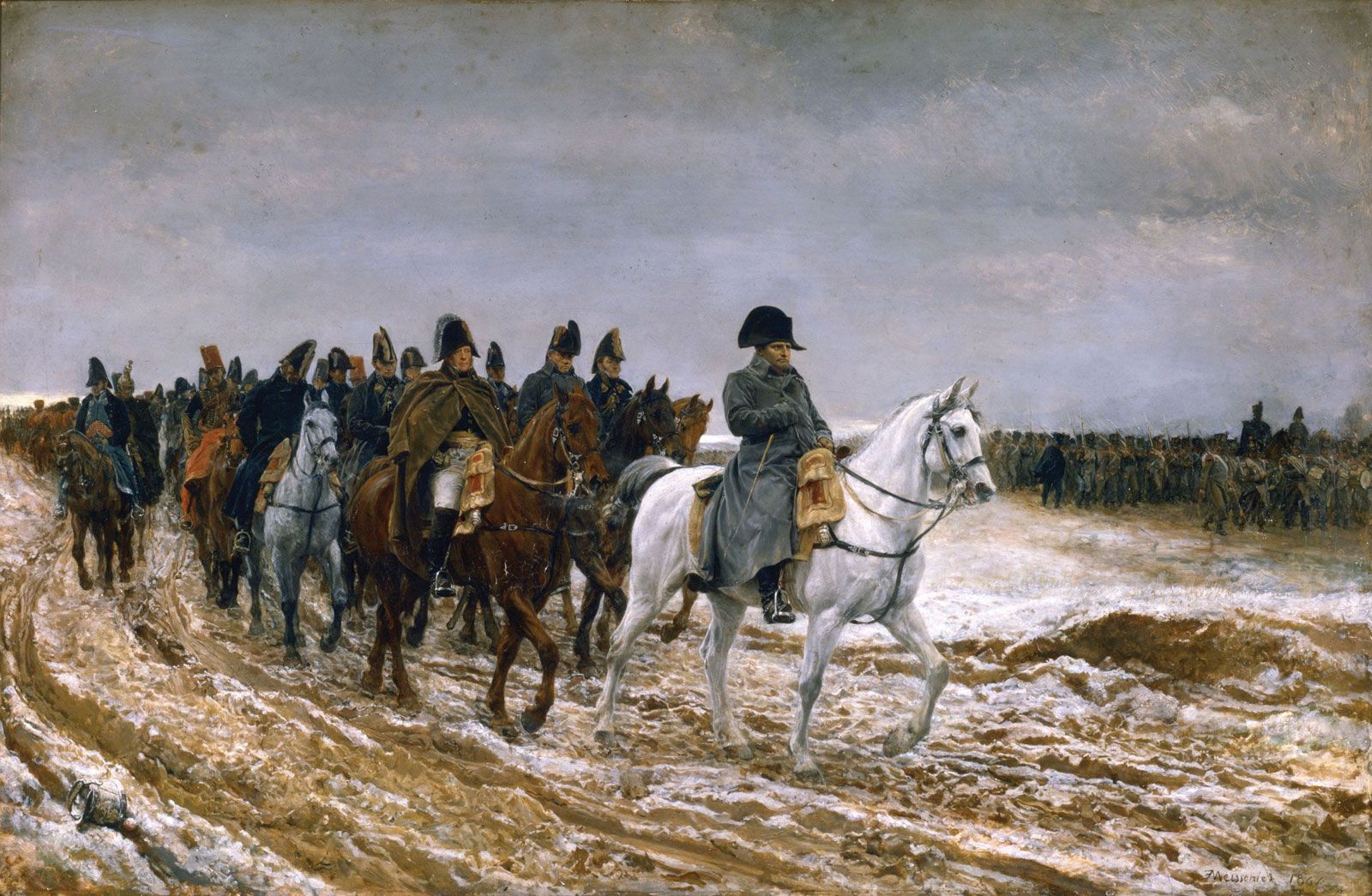The British had been the first to resist Napoleon successfully, at Trafalgar and on the economic battlefields of the Continental System. Then had come Spanish resistance, followed by Russian.
Now in 1813 almost every nation in Europe joined the final coalition against the French. Napoleon raised a new army, but he could not so readily replace the equipment lost in Russia. In October 1813 he lost the “Battle of the Nations,” fought at Leipzig in Germany, necessitating his retreat into France.
The German troops in his army were deserting, the Confederation of the Rhine collapsed, Italian support was increasingly unreliable, and the mystique of Napoleon was blighted. By April 1814 the well-organized forces of the coalition occupied Paris. Faced also with mounting unrest and conspiracy at home, the emperor abdicated when his marshals refused to continue the war. Napoleon was sent into exile as ruler of the island of Elba, off the western coast of Italy.
The statesmen of the victorious coalition gathered in the Congress of Vienna to draw up the terms of peace. The Bourbons returned to France in the person of Louis XVIII, a younger brother of Louis XVI. Realizing that he could not revive the Old Regime intact, the new king issued the Charter of 1814 establishing a constitutional monarchy. Then, on March 1, 1815, Napoleon pulled his last surprise: He landed on the Mediterranean coast of France.
For a hundred days, from March 20, when Napoleon reentered Paris, the French empire was reborn. Once again the emperor rallied the French people, this time by promising a truly liberal regime with a real parliament and genuine elections. He never had time, however, to show whether his promise was sincere, for on June 18 the British under Sir Arthur Wellesley (1769-1852), the duke of Wellington, and the Prussians under General Gebhard von Blucher (1742-1819) delivered the final blow at Waterloo, near Brussels.
Again Napoleon was sent into exile, this time to the remote British island of St. Helena in the South Atlantic. There in 1821 he died, perhaps from arsenic poisoning. Bonapartism, however, did not die with him. A Napoleonic legend arose, glossing over the faults and failures of the emperor, depicting him as a champion of liberalism and patriotism, and paving the way for the advent of another Napoleon in 1848.

